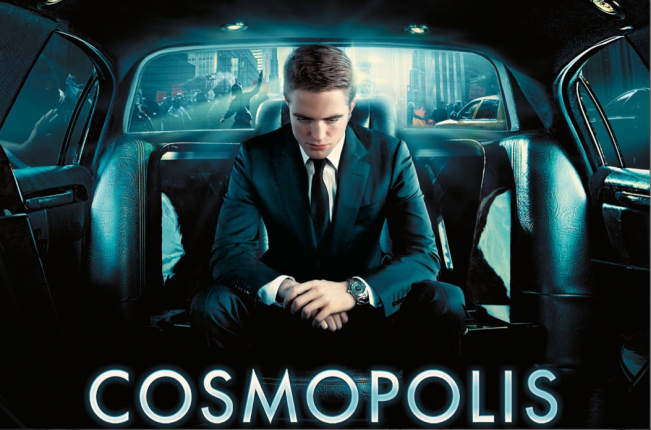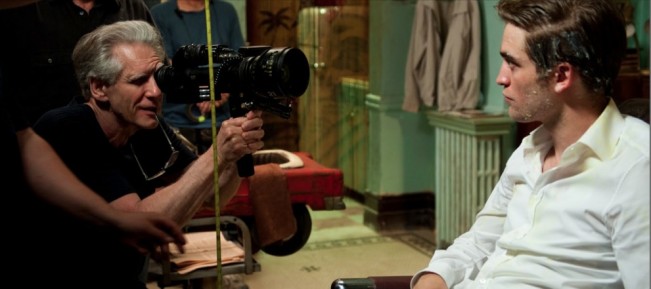

By Ray Pride Pride@moviecitynews.com
Don DeLillo talks COSMOPOLIS (spoilers)
From the press kit: “It all happened very quickly, actually. [The script] was incredibly close to the book. Of course, Cronenberg cut out a few scenes that couldn’t work out, but it is totally faithful to the spirit of the novel. Of course, I had no intention to make comments when I read it, it had become a Cronenberg film. It is my novel, but it is his film, there is no question about it. Then, last March, I saw the film in New York once it was completed. I was really impressed. It is as uncompromising as it can possibly be. I liked it from the very beginning, from the opening credits: what an amazing idea to start with Jackson Pollock, and to finish with Rothko, for that matter. And the final scene, with [—] and [—], is just mind-blowing! Throughout the years, there have been many proposals to adapt several of my books, but they have never come through. I thought that adapting ‘Cosmopolis’ would be particularly tricky, since most action is confined within a car, which doesn’t translate well to the screen. But not only did Cronenberg respect that, he also shot in the limo some scenes that originally happened elsewhere, like the sequence with Juliette Binoche, for instance.”
On his novels, often fixated on movies, being hard to adapt: “I thought that ‘Libra’ or ‘White Noise’ could easily be turned into films, but apparently it is very complicated. I don’t know why. Anyway, don’t expect me to take care of it myself and write a screenplay… Many people think that in the 1960s I quit my job in an advertising company to write my first novel. Not at all: I just quit so I could go to the movies every afternoon. Only afterwards did I seriously take up writing… As I live close to New York, I keep discovering many new films that have become impossible to watch in a theater anywhere else in the United States. At some point in my life I lived in Greece, for three years, and I was film-starved, many good films weren’t shown there, I really missed it. Otherwise, I have kept a close look on what has been happening in the cinema industry, and I think that lately The Turin Horse by Béla Tarr, The Tree Of Life by Terrence Malick or Melancholia by Lars von Trier have been real milestones.”
On the visual obsessions of his writing: “I am not comfortable with abstract writing, stories that look like essays: you have to see, I need to see.”
 On mixing New York and Toronto locations: “The important thing is that it happens inside a limousine. It is like a world itself, with several intrusions of various kinds, visitors, or an angry mob. This is what really matters. Besides, shooting elsewhere gives the film a more general dimension, of course it is New York, but it is more the idea of ‘the great contemporary city’ we are dealing with, which is perfectly fine.”
On mixing New York and Toronto locations: “The important thing is that it happens inside a limousine. It is like a world itself, with several intrusions of various kinds, visitors, or an angry mob. This is what really matters. Besides, shooting elsewhere gives the film a more general dimension, of course it is New York, but it is more the idea of ‘the great contemporary city’ we are dealing with, which is perfectly fine.”
And on Cronenberg taking swathes of dialogue directly from the novel? “It is the strangest thing! These are my words, but they take on another life. I wrote this conversation about art that Eric and the character played by Juliette Binoche have, but somehow it felt like I was discovering it, or even understanding it for the first time.”
















excellent info. Very excited about this, especially since it has the DeLillo seal of approval!